
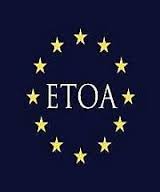
ETOA CEO Tom Jenkins has one word: “Ugh”
How to tourists travel to Europe and the UK after Brexit? These are the questions many in Europe have today after Brexit will now happen by the end of January 2020. How do travel and tourism leaders feel? “Ugh” could be interpreted as disgusting. Ugh is the comment made to eTurboNews by the CEO of the European Tour Operator Association, (ETOA), Tom Jenkins Tom has been CEO of ETOA for twenty years. Tom ensures ETOA’s financial viability and oversees the strategic development of all ETOA projects and practices. This includes keeping ETOA at the forefront of the travel industry matters and reporting back to the membership on developments at a European level. One word says it all, and Jenkins should know.
Today’s report on CNBC suggested once the dust settles on Britain’s third general election in less than five years, many market participants will seek clarity from the government on what happens immediately after Jan. 31.
The world’s fifth-largest economy will maintain relations with the EU until at least the end of 2020 as it negotiates trade and other ties to the bloc.
Of course, the U.K. could still have a hard exit from the single market and customs union at the end of 2020 if the U.K. and the EU do not manage to strike a free-trade agreement in time for the end of the transitional period.
Even in this respect, the apparent election result mitigates the risk: If the exit poll is right and Johnson is set for a big majority, the hardline eurosceptic wing of the Conservative will matter less than before. This would make it easier for Johnson to go for a longer transitional period if needed.
Johnson has consistently said he will be able to secure a trade deal with the EU by the end of 2020 or leave without one if he doesn’t.
To be sure, a so-called “no-deal” Brexit is seen by many inside and outside of Parliament as a “cliff-edge” scenario to be avoided at all costs. According to ETOA, the United Kingdom (UK) is set to leave the European Union (EU) at 23.00 GMT on 31 January 2020.
Until the withdrawal agreement is ratified by UK and EU Parliaments, the default scenario is the UK to leave without a deal. The following guidance outlines travel in a ‘no deal’ scenario published by the European Commission and UK Government. Some changes would come into effect immediately following the UK’s departure from the EU and may also affect travel to the non-EU countries (Iceland, Liechtenstein, Norway, and Switzerland).
The following information published on the ETOA website with information on Immigration and Border Processes should be used as guidance only:
UK citizens traveling to EU
- UK citizens visiting Ireland will continue to enjoy free movement in accordance with the Common Travel Area arrangements between Ireland and the UK.
- Visa free travel will be allowed for up to 90 days in a 180 day period in Schengen countries. This will include non-Schengen EU countries (Bulgaria, Croatia, Cyprus and Romania) as the same rules are applied at their external borders. Time in a non-Schengen country does not count towards the 90 day limit in Schengen.
- UK citizens must have 6 months validity remaining on their passport when arriving in Schengen countries and any additional months added over 10 years may not count. For non-Schengen countries (Bulgaria, Croatia, Cyprus and Romania), 3 months after the intended departure is required. UK Government has a website tool to check if a passport will be valid here.
- UK will become a ‘third country’ of the EU and therefore UK citizens may be subject to extra entry checks at the EU border. Questions asked by border officials may include purpose and itinerary of stay and evidence of subsistence.
- UK citizens will not be allowed to use entry lanes at the EU border reserved for citizens from EU/EEA/CH countries. Each member country can decide whether the UK will have its own entry lane or be required to join lanes with other non-EU countries.
- UK citizens will be subject to ETIAS when introduced by the EU from 2021 to non-EU visa waiver countries. The fee will be €7 per person valid for 3 years and allow multiple entries.
Further information on travel can be found in the fact sheet produced by the EU Commission here.
EU citizens traveling to UK
- Irish citizens visiting the UK will continue to enjoy free movement in accordance with the Common Travel Area arrangements between Ireland and the UK.
- A visa will not be required for EU/EEA/CH citizens visiting the UK. UK Government guidance can be found here.
- There will be no restriction on the length of stay in the UK for EU/EEA/CH citizens visiting, working and studying until the new UK immigration policy is implemented (proposed from 1 January 2021).
- EU/EEA National Identity cards can still be used (EU and Iceland, Liechtenstein and Norway) but acceptance will be phased out during 2020. UK Government is to announce more details in due course and say they “recognize that some people will need to apply for a passport and that sufficient notice will be required to enable them to do so.”
- EU/EEA/CH citizens will be able to use e-gates at the UK border with a biometric passport.
- A passport with less than 6 months’ validity will still be accepted.
- The blue EU customs channel will be removed at the UK border and therefore all travellers will be required to make a customs declaration by choosing either the green or red channel. Further information on bringing goods into the UK after Brexit can be found here.
Non-EU citizens traveling to the UK
- Visa requirements (if applicable) will stay the same as before the UK’s departure from the EU.
- However, some non-EU citizens will require an airport transit visa, if en route to the UK they pass through the international transit area of airports situated in the EU (except Ireland) or in the Schengen Associated Countries (Iceland, Norway, and Switzerland). A UK visa will no longer exempt from this requirement.
- The ‘List of Travellers Scheme’ is under review and may be phased out during 2020. This applies to non-EU citizens resident in an EU country traveling on a school trip.
- There will be no change to the entry process at the UK border.
- This includes travel from Republic of Ireland to Northern Ireland, where the British-Irish Visa Scheme and Short-Stay Visa Waiver Programme remain in effect. Due to the Common Travel Area arrangements, visitors will continue to not be subject to immigration checks when traveling between the two countries.
- Since June 2019, 7 non-EU citizens are now allowed to use e-gates at the UK border – USA, Canada, Japan, South Korea, Singapore, Australia and New Zealand.
- Landing cards from all other countries have also been abolished.
Non-EU citizens traveling to EU
- Visa requirements (if applicable) will stay the same as before the UK’s departure from the EU.
- There will be no change to the entry process at the EU border.
- This includes travel from Northern Ireland to Republic of Ireland, where the British-Irish Visa Scheme and Short-Stay Visa Waiver Programme remain in effect. Due to the Common Travel Area arrangements, visitors will continue to not be subject to immigration checks when traveling between the two countries.
Residents
UK citizens living in EU
- For a stay lasting more than 90 days a residence permit or a long-stay visa from the national migration authorities of the EU country will be required (excluding Ireland).
- UK citizens will continue to not be subject to immigration restrictions to live and work in Ireland, in accordance with the Common Travel Area arrangements between Ireland and the UK.
Further information issued by the UK Government is available here and includes living in Iceland, Liechtenstein, Norway and Switzerland.
EU citizens living in UK
Prior to UK’s departure from EU
- All EU citizens (excluding Irish) are required to apply to the EU Settlement Scheme before 31 December 2020. The scheme is free and only needs to be completed once. For EU citizens living in the UK for less than 5 years, pre-settled status will be granted; 5 years or more, settled status. Both offer broadly the same rights i.e. access to work and health but EU citizens with pre-settled status can only leave the UK for up to 2 years in a row without affecting their status (whereas for those with settled status the maximum is 5 years). Further information on the statuses is available here.
- Employers will not be required to undertake right-to-work checks after Brexit on EU employees resident in the UK prior to Brexit.
Arriving after UK has left EU until 31 December 2020
- EU citizens (excluding Irish) arriving after Brexit can live in the UK until 31 December 2020 without making any special arrangements in advance. However, to remain in the UK from 2021, EU citizens must before 31 December 2020, either apply for a 36-month temporary immigration status (European Temporary Leave to Remain – Euro TLR) or have applied and obtained a UK immigration status under the proposed UK’s new immigration strategy from 1 January 2021.
- The Euro TLR will be free to apply for and the 36-month period will start from the date the leave is granted and not from 1 January 2021.
- The Euro TLR also applies to citizens from Iceland, Liechtenstein, Norway and Switzerland.
- Irish citizens are unaffected and can live in the UK in accordance with the Common Travel Area arrangements.
Further information issued by the UK Government is available here.
All non-UK citizens living in UK from 1 January 2021
- The UK Government has proposed a new immigration strategy (December 2018) subject to approval of UK Parliament, which would start from 1 January 2021 (even if a ‘deal’ is agreed).
- Under the current proposed strategy, EU and non-EU citizens seeking employment would have the same single access route and would be required to satisfy the criteria of a ‘skilled worker’ to be able to access rights and stay in the UK for more than 1 year. A UK employer would need to sponsor the employee but the Resident Labour Market Test would be abolished (where an employer has to advertise a job for 4 weeks and consider applications from resident workers before offering it to a migrant). There would be no cap on the number of ‘skilled’ workers. A £30,000 annual salary threshold would be applicable (lower for Graduate entry jobs and those aged 25 and under) and the skills threshold would be RQF level 3 (A Level, Advanced Apprenticeship, Level 3 NVQs).
- As a transitional measure (full review in 2025), temporary short-term workers at all skill levels would be allowed up to 1 year from specified low risk countries (to be determined). There would be no salary threshold and employers would not need to sponsor. Employees would have limited access to rights such as health.
- Please note this current proposed strategy is subject to change as the Migration Advisory Committee (MAC) are currently reviewing the salary threshold and whether to introduce a new, points based immigration system. MAC has requested businesses to respond to their consultation (open until 5 November here). Their report is expected in January 2020.
Transport
Air Services
- The UK will no longer be a member of the EU Open Skies Agreement but ‘basic connectivity’ of ‘point-to-point’ air services will be allowed between the UK and EU after the UK’s departure from the EU.
- UK airlines will not be allowed to operate intra-EU flights and likewise EU airlines will not be allowed to operate intra-UK flights.
Further information on the UK Government’s policy position on air services can be read here.
Road Licences / Insurance
- Mutual recognition of driving licenses by EU member states will no longer automatically apply to UK license holders.
- UK license holders can check whether an International Driving Permit (IDP) is required here for a European country. If applicable, an IDP can be purchased from Post Offices.
- EU license holders will not require an IDP to drive in the UK.
- A UK trailer may need to be registered before being towed in some European countries. Further information is available here.
- A green card (proof of insurance) will be required for UK license holders traveling to the EU and EU license holders traveling to the UK. A green card can be obtained from insurance companies and one month’s notice is recommended to be given. If the vehicle is towing a trailer, an additional green card for the trailer may be required.
- UK vehicles will need to display a GB sticker on the rear of the vehicle when traveling in the EU (except in Ireland), even if the registration plate has a GB identifier.
Further information from UK Government is available here.
Coach Travel
- The UK will join the Interbus Agreement which will allow ‘closed-door’ coach tours (occasional services) to continue to EU countries and Albania, Bosnia and Herzegovina, North Macedonia, Montenegro, Moldova, Turkey, and Ukraine.
- The UK Government has advised that until an agreement is reached, UK coaches will not be able to run occasional services to non-EU countries that are not party to the Interbus Agreement; these include Liechtenstein, Norway and Switzerland. This is because there is no agreement that allows a non-EU registered coach to travel through the EU to a non-EU country.
- UK coaches can still drive through a country not in the Interbus Agreement, but that country cannot be the destination.
- EU registered coaches can still travel to Liechtenstein, Norway and Switzerland as their destination.
- The Interbus Agreement does not allow cabotage (pick up and set down of passengers outside the coach company’s home country). It will depend on a national Government’s discretion whether this is allowed.
- We understand that the UK will allow cabotage by EU operators on a ‘temporary basis’ (historically interpreted as 3 months). Therefore, an EU coach would be allowed to pick up and set down passengers on a tour within the UK during this period but must return to the EU within 3 months.
- Scheduled regular coach services will be allowed to continue due to contingency measures agreed until their inclusion in the Interbus Agreement is ratified.
Further information from the UK Government is available here.
Road delays
- Due to new border procedures between the UK and EU particularly with regards to customs, journey times may be disrupted, especially in Kent. This should be taken into account when planning itineraries to comply with driving hours regulations.
- It is anticipated that delays are more likely leaving the UK than leaving the EU for the UK.
- ETOA met with Eurotunnel and the Port of Dover in September 2019 who have invested in human resources and infrastructure and both companies are prepared for Brexit. Further information for Eurotunnel coach passengers, Eurotunnel car passengers and from the Port of Dover.
- Details of Operation Brock, a contingency plan to manage congestion in Kent and to check whether it has been activated can be viewed here. Operators can also check live communications issued by Highways England, Kent County Council, Eurotunnel and the Port of Dover.
- Highways England should also be checked when traveling to other UK ports.
Rail
- Cross border rail services in Ireland and between England and mainland Europe will continue to operate as normal.
Tax
VAT/TOMS
- As the UK will become a ‘third country’ to the EU, UK citizens will be entitled to a VAT refund on goods/services purchased within the EU.
- EU citizens will not be able to claim a VAT refund on goods/services purchased in the UK until legislation is passed by UK Parliament.
- A UK version of TOMS is proposed by UK’s HM Revenue & Customs where UK businesses will only pay VAT on UK travel.
- UK businesses trading in EU countries are still subject to VAT on EU travel and may need to register for VAT in each member state to pay and reclaim VAT on the price paid by the consumer. EU guidance on VAT is available here.
- HM Revenue & Customs have yet to confirm if EU businesses trading in the UK will pay UK VAT. We understand this will not be the case but this could change depending on the UK’s future relationship with the EU.
Members can receive initial advice on a complimentary basis by contacting Elman Wall Bennett (contact details provided in the member area hotline page) or please contact ETOA’s policy team for further information.
Customs and Duty on Goods
- Allowances and restrictions for goods brought into the EU from the UK will be re-introduced and subject to customs checks and duty if over the allowance.
- Animal origin products such as ham and cheese will be prohibited in a traveler’s luggage. Exceptions are provided for certain types such as infant food or for medical reasons.
Further information from European Commission is available here.
Other matters
Healthcare
- The European Health Insurance Card (EHIC) may no longer be valid for UK citizens unless there is a bilateral agreement between UK and an EU member country in which assistance is sought.
- For instance, the UK and Spain (including the Balearic Islands and the Canary Islands) have agreed that the UK and Spanish citizens will be able to access healthcare in each other’s country until at least 31 December 2020.
- Due to the Common Travel Area arrangements, UK and Irish citizens are able to access healthcare in each other’s country.
- The UK Government has committed to covering the healthcare costs of UK visitors to the EU who commenced their trip prior to the UK leaving the EU until they return to the UK.
- As the EHIC scheme covers pre-existing conditions, check when purchasing a travel insurance policy if pre-existing conditions are covered too, as some policies do not.
- UK citizens can access country-specific information provided by the NHS here.
- For UK citizens living in the EU, the UK Government has issued guidance here.
- EU/EEA/CH citizens can view information on accessing healthcare in the UK here as arrangements differ by country and time period.
Card Payments
- Charges on card payments may increase as transactions between the UK and EU will no longer be covered by EU rules limiting fees.
Roaming
- Surcharge-free roaming will no longer be guaranteed. Therefore charges could be re-introduced for UK citizens in the EU and EU citizens in the UK by mobile communication providers for roaming services.
- Some mobile operators in the UK (3,EE,o2 and Vodafone) have no plans to re-introduce roaming charges for UK customers traveling in the EU but check with the mobile operator before traveling to confirm.
Further information from the UK Government is available here.
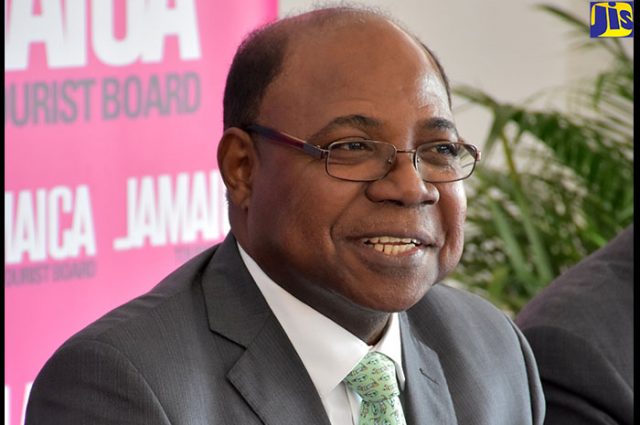
Urgently needed: Global Oversight of Travel Advisories
The Minister of Tourism for Jamaica, Hon Edmund Bartlett is taking an important step in saying there is a need for global oversight of travel advisories issued for destinations. The Minister made the call at the World Travel Market (WTM), which is being staged in London November 4 to 2019.
Speaking on a WTM panel discussion on ‘Taking responsibility for Safety and Security’, Minister Bartlett said, “this call for global oversight is being made in the context of the significance of tourism as a main economic driver in an increasing number of countries and implications that these advisories can have on the economic viability and stability of countries who are heavily tourism-dependent.”
Travel warnings or advisories are issued by governments to enable travelers to make an informed decision about a particular travel destination and to help travelers prepare adequately for what may be encountered on their trip.
Minister Bartlett, who also made the call at the launch of the World Travel and Tourism Council Crisis Readiness Report in partnership with Global Rescue which was held today during WTM, said whilst Jamaica has not been severely impacted by travel advisories there are other countries who have been.
Kenyan Cabinet Secretary for Tourism and Wildlife, Hon Najib Balala, also agreed with the sentiment and highlighted the negative impact of old information regarding security and safety issues remaining for years on platforms such as websites, even after the event shave passed.
Globally, tourism represents 10 percent of global GDP and employs 1 in 10 workers of the world. Some small and highly dependent tourism countries have GDP dependence of up to 90 percent as is the case in of a number of Caribbean countries.
“Travel advisories weigh heavily on the decisions of tourists to visit destinations. Many times, these advisories do not have timely review and consequently continue to carry a perspective on the destination which may long have changed thus putting at risk the economic viability of those communities.
There should be a global body that offers some oversight in the area and would intervene on behalf of some of these countries to have adjusted advisories that reflect a more accurate picture as to what is happening,” Minister Bartlett said.
The WTM is a major promotional platform for the JTB. It will feature many Jamaican companies, creating the ideal opportunity to meet industry professionals and conduct business deals. Through its industry networks, the WTM also creates personal and business opportunities while also providing customers with quality contacts, content and communities.
During the WTM, Minister Bartlett will also use the opportunity to increase in outbound travels from the UK, Northern Europe, Russia, Scandinavia, and Nordic region to grow arrivals from these markets.
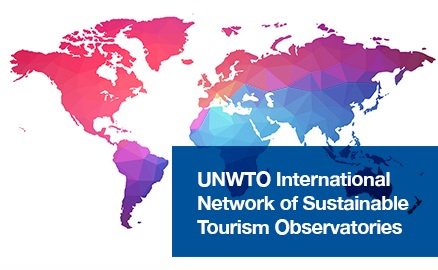
Australia’s South West Sustainable Tourism Observatory joins UNWTO Observatory Network
Australia’s South West Sustainable Tourism Observatory, has officially become the latest member of the World Tourism Organization’s International Network of Sustainable Tourism Observatories (INSTO). The Observatory will work to monitor tourism in the south-west region of Australia and help guide its sustainable development.
The Australia’s South West Sustainable Tourism Observatory (ASWTO) is the first of its kind in the country and will be hosted by the Tourism Research Cluster of Curtin University supporting the formulation and implementation of sustainable tourism policies, strategies and management processes through continuous and systematic monitoring of sustainability indicators.
Welcoming the announcement, Zurab Pololikashvili, Secretary-General of the World Tourism Organization (UNWTO) said: “Sustainable Tourism Observatories play a key role in helping destinations monitor tourist arrivals and then manage them in the most efficient and sustainable way possible. We are delighted to welcome the first Australian observatory into our growing global network and I am confident we will be able to work together to advance responsible, sustainable tourism across the South-West region of Australia.”
Western Australian Minister for Tourism Paul Papalia added: “WA’s South West region is one of WA’s most popular tourism destinations – one that holds a special place in the heart of all West Australians. This destination is renowned for its spectacular coastline, stunning forests and world-class food and wine. Preserving the South West region’s natural beauty while also supporting sustainable tourism development is of the utmost importance to the State Government.”
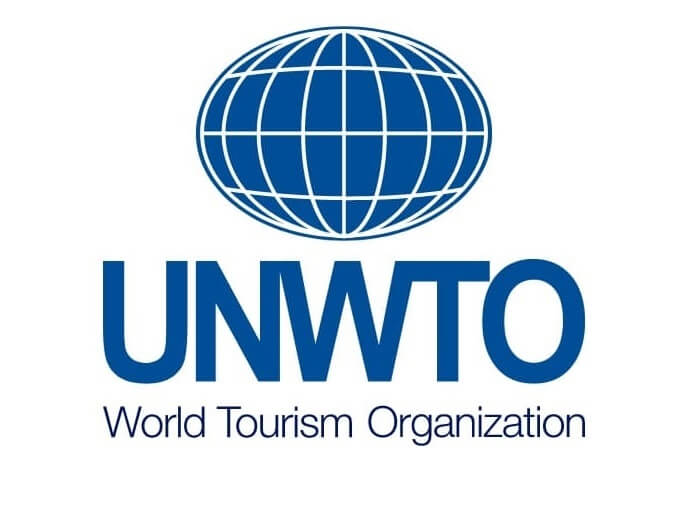
UNWTO: United States moves closer to rejoining World Tourism Organization
A high-ranking official delegation from the US Department of State has met with head of the World Tourism Organization (UNWTO) as the United States of America moves closer to rejoining the United Nations specialized agency for tourism.
Assistant Secretary of State for International Organization Affairs Kevin Moley and Assistant Secretary for Economic and Business Affairs Manisha Singh were welcomed by UNWTO Secretary-General Zurab Pololikashvili, following up on the announcement that the USA is exploring rejoining UNWTO, of which it is a founding member. The two parties enjoyed productive discussions as the terms of membership are being finalized.
This is the highest level visit of a US delegation to the UNWTO headquarters registered so far. In June of this year, the United States used the occasion of the UNWTO Executive Council meeting to confirm it is exploring the possibility of rejoining, stating that “the UNWTO offers great potential to fuel economic growth in the U.S. tourism sector, create new jobs for American workers, and highlight American travel destinations”.
UNWTO Secretary-General Zurab Pololikashili underscored that “it is extremely encouraging that the United States has clearly signaled its intention to rejoin UNWTO and support tourism as a key driver of job creation, investments and entrepreneurship and safeguarding natural and cultural heritage the world over”.

Todays UNWTO Star: Hon. Najib Balala from Kenya
The Minister of Tourism of Kenya, The Hon. Minister Najib Balala was elected today to chair the UNWTO executive council.
This election took place Friday during the UNWTO General Assembly in Saint Petersburg, Russia.
Immediately after this important election the African Tourism Board chairman Cuthbert Ncube congratulated in saying: “The African Tourism Board congratulates the Kenyan minister, the Honorable Najib Balala t his election to lead the UNWTO Executive Council.
This is an important achievement not only for him but for Africa and its vibrant travel and tourism industry. It shows the importance and richness of Africa as a driver in the global travel and tourism industry.
We’re looking forward to working with Kenya as an important leader in improving our Communities through Sustainable Tourism.”
Congratulations are coming in from tourism leaders around the world.
Najib Balala was born on September 20, 1967 He studied Business Administration and International Urban Management and Leadership from the University of Toronto and the John F. Kennedy School of Government at Harvard.
His impressive career includes:
- Prior to venturing into Public life, Najib Balala was in the private sector in the tourism business and eventually joined a family tea/coffee trade business.
- He was Secretary of The Swahili Cultural Centre from 1993–1996.
- Chairman – Coast Tourist Association between 1996–1999.
- His tenure as the Mayor of Mombasa 1998–1999 witnessed a rapid transformation of Mombasa into an economic hub and drastic change in the affairs at Town Hall by team leading an anti-corruption crusade.
- Chairman, Chamber of Commerce and Industry (Mombasa Chapter) from 2000–2003.
- 27 Dec 2002 to 15 Dec 2007 : Member of Parliament for Mvita Constituency
- 7 Jan 2003 – 31 June 2004: Minister for Gender, Sports, Culture and Social Services
- Jan – June 2003: Acting Minister for Labour
- 31 June – 21 Nov 2005: Minister for National Heritage
- 27 Dec 2007 to 15 Jan 2013 : Member of Parliament for Mvita Constituency
- 11 Nov 2011 to March 2012: Chairman of the UNWTO Executive Council
- 17 Apr 2008 to 26 March 2012: Minister for Tourism
- 15 May 2013 to June 2015 : Cabinet Secretary for Mining
- Currently since June 2015 : Cabinet Secretary for Tourism
The Executive Council’s task is to take all necessary measures, in consultation with the Secretary-General, for the implementation of its own decisions and recommendations of the Assembly and report thereon to the Assembly.
The Council meets at least twice a year.
The Council consists of Full Members elected by the Assembly in the proportion of one Member for every five Full Members, in accordance with the Rules of Procedure laid down by the Assembly with a view to achieving fair and equitable geographical distribution.

The new minister from Zambia loves tourism and singing
Ronald Chitotela is the new minister of tourism of Zambia’s., Ronald Chitotela was the former minister of infrastructure. This was announced after Zambia’s President Edgar Lungu’s latest government reshuffle last week Friday.
“We have not time to wait, we have to hit the ground running… We shall continue from where our brother left from in making sure the Tourism sector brings the much-needed revenue to the country. Local and international doors ought to be opened as a matter of urgency,” says the minister on his new Facebook page.
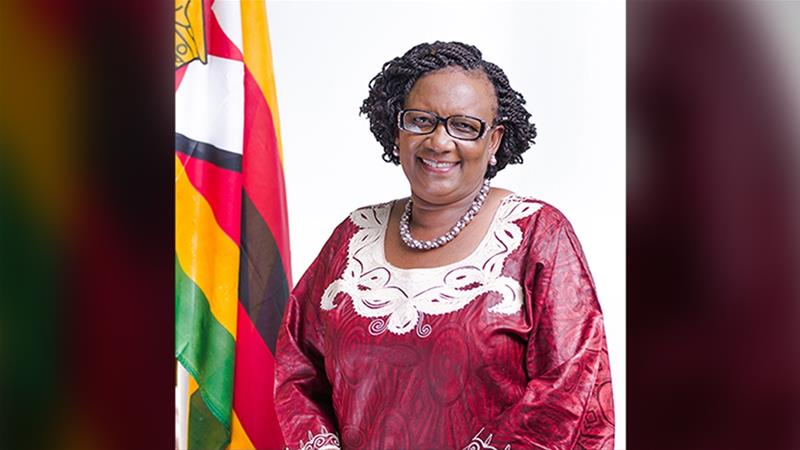
Tourism Minister Arrested for Corruption!
Tourism in Zimbabwe is seen as the biggest money earner left in Zimbabwe after the overthrow of the Mugabe regime. In charge of tourism is the Honorable Minister of Prisca Mupfumira. As of today, this minister is in a Harare jail, arrested by the Zimbabwe Anti-Corruption Commission.
Prisca Mupfumira was in charge as the Minister of Public Service during the Mugabe government and at the time Dr. Walter Mzembi served as the longest-serving Minister of Zimbabwe.

The Caribbean urged to look within to grow tourism
Leaders in the Caribbean tourism industry have been advised to embrace and develop the strengths of their people to keep the industry among the most competitive in the world.
The charge came from the acting secretary general of the Caribbean Tourism Organization (CTO) Neil Walters speaking at the Grenada Tourism Authority’s inaugural awards ceremony held at the Spice Island Beach Resort in Grenada.
“Yes, we can have the most beautiful properties, the best airports, the best seaports, but it is the people who make the Caribbean tourism product what it is. It is your welcoming and hospitable spirit which encourages visitors to return,” said Walters.
The acting SG said demands from visitors for experiences beyond the traditional ‘sun, sea and sand’, only served to enhance the need for the industry to equip the hospitality workforce to perform at the highest level.
“If we took a snapshot of tourism at this point in time, we will see that one of the strongest reasons for the continued growth in the number of persons visiting our shores is the spirit exuded by the amazing individuals who get up and go out and work on the front line every day. The individuals who don’t just see it as a job but see the value of the service they are giving. That is the thing success stories in this industry are made of,” said Walters.

Jamaica Tourism Minister attends UNWTO Executive Council Welcome Reception
Jamaica Minister of Tourism, Hon. Edmund Bartlett, seen left in the main photo, is keeping the Hon. Didier Dogley, Minister of Tourism, Civil Aviation, Ports and Marine for the Seychelles and Dr. the Hon. Charles Banda, Chairman, United Nations World Tourism Organization (UNWTO) Executive Council, amused during the welcome reception for delegates to the 110th UNWTO Executive Council Meeting.
The event took place on Sunday, June 16, at the Mugham Club Restaurant in Baku, Azerbaijan. The UNWTO Executive Council meeting is taking place June 16-18 in Baku.

Above, the Jamaica Minister of Tourism Bartlett, seen on the left, poses for a photograph with Mr. Zurab Pololikashvili, United Nations World Tourism Organization (UNWTO) Secretary General, and Mr. Fuad Naghiyev, Chairman of Azerbaijan’s State Tourism Agency. The three gentlemen met at the welcome reception for delegates.
The Executive Council, in consultation with the Secretary-General, works to implement its own decisions and recommendations of the Assembly. The Council meets at least twice a year.
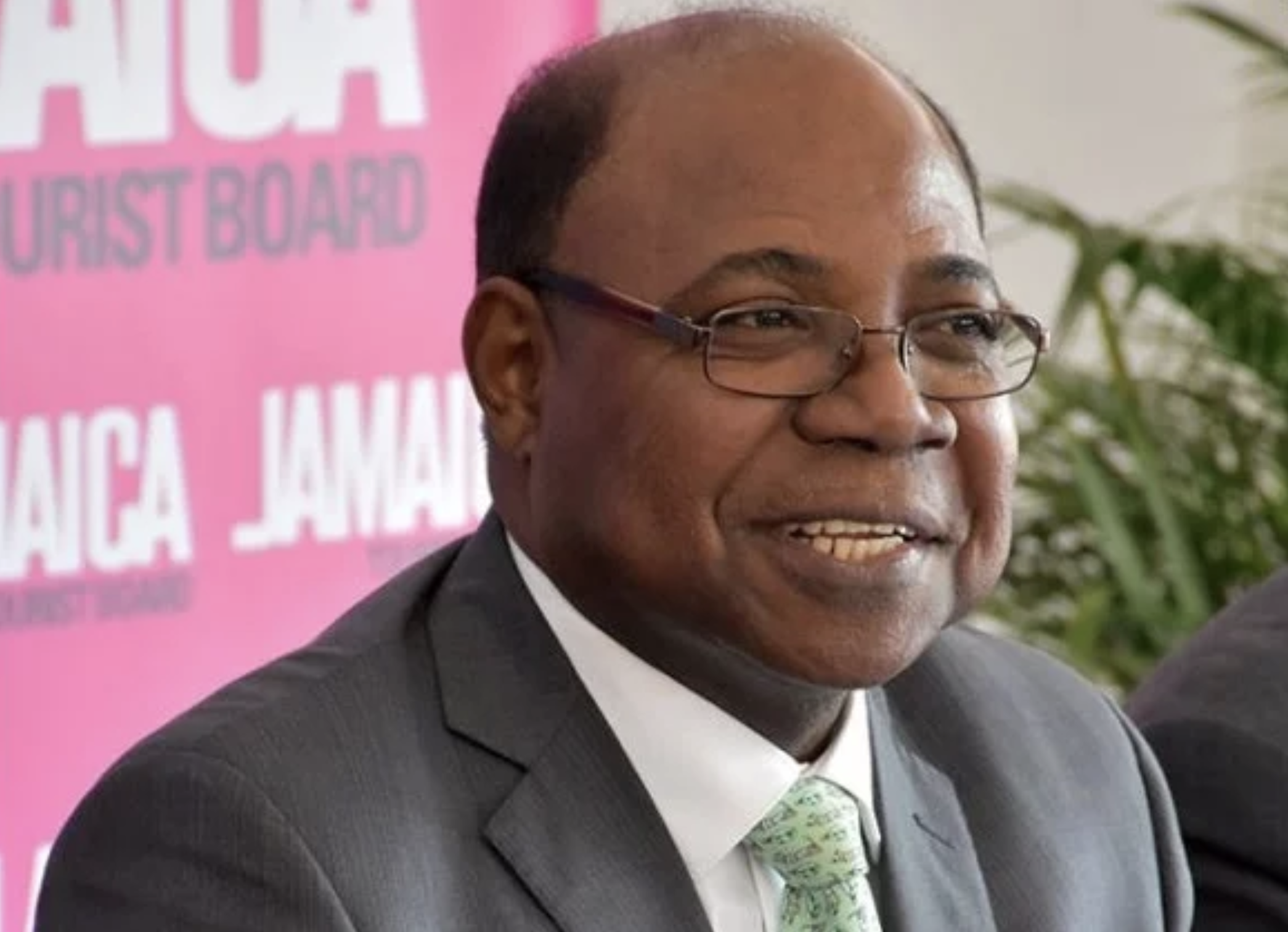
Bartlett Announces the Establishment of Four New Global Tourism Resilience and Crisis Management Centres
Tourism Minister, Hon. Edmund Bartlett says four Global Tourism Resilience and Crisis Management Centres (GTRCM) will be opened in Japan, Malta, Nepal and Hong Kong, in an effort to build the resilience of the Asian tourism product.
“Today, the Global Tourism Resilience and Crisis Management Centre took on a new global perspective, when Nepal became the first of four regional Centres to be established over the next eight weeks. The Director of the Nepal Tourist Board, Deepak Raj Joshi and I, have completed an arrangement for the establishment of the first Centre in Asia,” said Minister Bartlett.
The Minister made this announcement on Friday, while participating in a panel discussion at the inaugural Asian Resilience Summit held in Kathmandu, Nepal on May 30 – 31, 2019.
He went on to share that, “the GTRCM in Kathmandu will become the Centre for the areas covering China and India. The next Centre will be established in Hong Kong and the work is currently going on with the team.”
The GTRCM in Japan will be housed at the Japan International University, which is a private university located in Minamiuonuma city in Niigata Prefecture, Japan.
The first Centre, located at the University of the West Indies, Mona, was launched at the beginning of the year at the Montego Bay Convention Centre, with a number of local and international government leaders and partners, including Prime Minister, the Most Hon. Andrew Holness.
It was first announced during the United Nations World Tourism Organization (UNWTO) Global Conference on Sustainable Tourism in St. James in November 2017, and is tasked with creating, producing and generating toolkits, guidelines and policies to handle the recovery process following a disaster.
“These four new Centres will position the Global Resilience Centre as a true international construct. The University of the West Indies which hosts the primary Centre, will become the coordinating university for these outstanding other universities which are located across the globe slated to host these new Centres,” said Minister Bartlett.
During his visit, the Minister will meet with the Former UNWTO Secretary General, Dr. Taleb Rifai, regarding the recovery strategies for Nepal’s post-earthquake programme, at the request of Prime Minister Andrew Holness.
Minister Bartlett will later travel to the US Virgin Islands to participate at the Meeting of the Clinton Global Initiative (CGI) Action Network on Post-Disaster Recovery during the period June 3-4, 2019. This Action Network brings together leaders from across sectors to develop new, specific, and measurable plans that advance recovery and promote long-term resiliency across the region.
The meeting will outline innovative programmes in the tourism sector and sustainable practices that are inclusive of Small and Medium Enterprises and conducive of economic growth.
“Jamaica continues in its thought leadership in tourism. We also continue to position our country and the Caribbean, as the new reference point for resilience building, particularly for countries that are highly tourism dependent,” said Minister Bartlett.
The Minister is accompanied by Professor Lloyd Waller, Senior Advisor/Consultant and Miss Anna-Kay Newell his Executive Assistant, in Nepal. Professor Waller and Miss Newell will return to Jamaica on June 2, 2019.
The Minister, however, will return to Jamaica on June 6, 2019, as he will be attending the meeting of the CGI Action Network on Post-Disaster Recovery in the US Virgin Islands alone.
The Minister received his invitation to visit Nepal from Deepak Raj Joshi, Chief Executive Officer of the Nepal Tourism Board. The Government of Nepal also funded the Minister’s participation in the Asian Resilience Summit.
